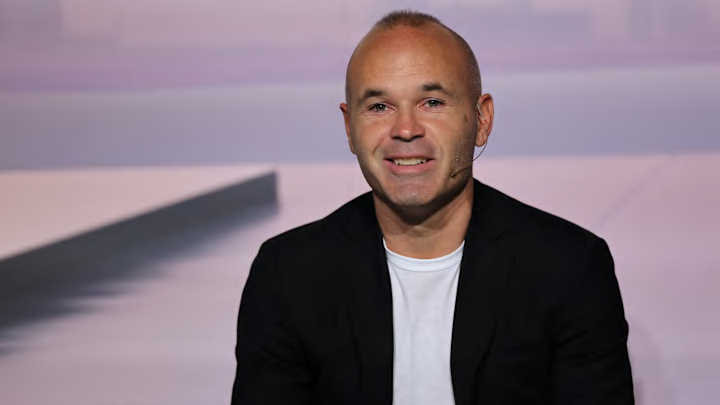Andrés Iniesta, now 40 years old, has officially retired as a soccer player. An emotional event was staged in the company of friends, former Barcelona teammates, and Spanish soccer legends, as the now-retired star reflected upon a career that took him to dizzying heights. The ball will no longer be at his feet, but Iniesta made one thing crystal clear: his love affair with soccer is anything but over. He emphasized in a quiet, thankful speech: "Soccer ends in this phase, but the game continues."
Follow Playing for 90 on X (Twitter).
A new chapter begins

Such retirement of a heartthrob in the field of soccer is bound to make all fans nostalgic and yearn for it. Iniesta had been the core of some of the most dominant eras of Barcelona and Spain's national teams. Now, looking ahead, he already has his sights on a new path: coaching. "Soccer was my life, and it will continue to be," he underscored, insistent on the eternal love for soccer.
Even as he has said goodbye to the pitch, it will be far from the truth to say that Iniesta is leaving soccer. His coaching career has already started, and it wouldn't be surprising at all to very soon find him on the sidelines of some big club. Of course, expectations will be high, for a player who dominated the pitch with his game for so long is expected to do nothing less than teach the perfect game to his students.
The legacy left at Barcelona
Iniesta is no less than a legend in the camps of Barcelona, having guarded the colours of the Catalan club for 16 years, amassing an astonishing 32 titles, including four Champions Leagues, nine La Liga titles, and three Club World Cups. The fulcrum of the team that had sent the world into ecstasies under Pep Guardiola, flanked by Xavi and Sergio Busquets as he fed into the brilliance of Lionel Messi.
Iniesta's game is an art in every sense. Precise passes, vision second to none, he was the midfield maestro who dictated the pace of play. He may never have been prolific in front of goal, but every touch seemed one with purpose. It was Iniesta, after all, who scored the deciding goal in the 2010 World Cup final that gave Spain its first and only world title to date.

The desire to return to Barcelona
During his farewell event, Iniesta himself mentioned how much he wants to come back to Barcelona: "Those who made their mark on this club should be here," he said. However, he didn't stop there, since he mentioned clearly that if he has to come back, he will need to feel he can contribute, and who doubts that he will?
His words were measured but laden with weight. Iniesta knows the value of his legacy at Barcelona and more than that, understands his return-question be it as coach or otherwise-is a matter of time and circumstance. He spoke firm that his "working profile will be the profile of Iniesta," a line which said so much about his character and how he sees himself able to help the club.
A giant for Spain
The influence of Iniesta did not remain locked into Barcelona. For the Spanish national team, he played 131 games, scoring 24 goals. Playing a decisive role in three historic moments of Spanish football--the conquest of the World Cup in 2010 and two titles of the Euro Cup in 2008 and 2012.
That goal against the Netherlands in 2010, in extra time's 116 minutes, is still remembered fondly by Spaniards. A strike that secured Spain's first-ever World Cup was more than just a goal; it was a moment when Iniesta managed to cement himself as a national hero.
His fellows and supporters alike know that Spanish soccer would have amounted to nothing without him. Just as he did at Barcelona, Iniesta brought a level of class to Spain's midfield that few else had, coupled with an innate sense of knowing how to control the game.
The end of an era?
With Iniesta's retirement, many will arguably feel that we're seeing the end of a golden generation in soccer. But the truth is, his retirement from active play doesn't say that he's walking away from the sport. Quite the contrary, Iniesta is just starting a new cycle. If he turns out to be as successful a coach as he was a player, then soccer will be gaining a new genius-this time on the sidelines.
